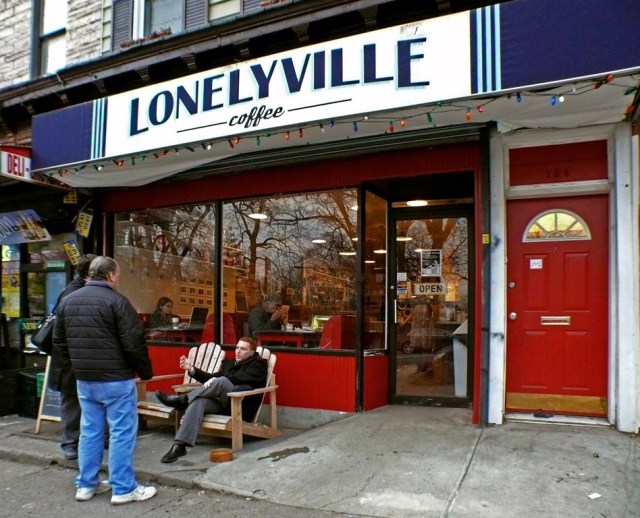“I did talk about my sadness/culture shock. It did help. I also worked hard on doing the stuff I liked to do and trying to have new friends. All these things helped” – Lola.
Up until now in this series on expat depression I have talked about what this dehabilitating illness looks like, how it affects you, why it affects you…now I want to turn towards something a bit more positive and start to explore how people have helped themselves. Later I will look more closely at professional help but before then I want to start discussing some self-help methods that you can try yourself. Of course I am not a mental health specialist so I can’t tell you whether you need to seek the help of a professional or whether tackling the illness yourself is enough. But even if you do feel the need for more help, some of these ideas might give you something you can do alongside seeking professional assistance.
Thank you to all the brave women and men who responded to my survey asking for their experiences. I have been humbled by how willing people have been to share what has very often been very difficult times for them.
It’s good to talk
“Time, really, and being able to talk to my husband about what was wrong…and feel I was being heard. It’s still a bit tenuous but it’s improving” – “V”.
Many people told me that talking about their feelings really did help. In many cases this was to a counsellor or another professional but I will look at that in another post. After counsellors though, the most popular person to discuss feelings with was a partner.
When I wrote the Expat Partner’s Survival Guide, I suggested that it shouldn’t just be the accompanying spouse that reads the book. It is all too common for the one who isn’t working to think they shouldn’t be bothering their partner with their worries and unhappiness. There is still a misconception that the one who goes off to work every day has the harder job – that they are the ones who need the support. I know from my own personal experience as well as the extensive research I have done for the book and this blog that this certainly is not always (or even usually) the case.
Unless you talk to them, your partner may not even know you are struggling. A classic symptom of this is that you bottle it up until one day they come home from another day in the office and you break down on them. They will probably then feel guilty that they didn’t realise there was a problem, but chances are they have been pretty wrapped up in their own, new life.
If you are unhappy, talk to them. If you worry that they will think this means moving was a huge mistake and you want to go home – reassure them, talk about culture shock, show them my book or my blog!
As well as partners (and of course not everyone has a partner, or perhaps their partner is part of the problem…), survey respondents talked to friends or family both in their host country and back home. Some though cautioned to be careful who you spoke to – many expat communities are small and lips can be loose. A trusted friend or family member not connected to your new life could be easier to talk to than someone you have only recently met.
Social interaction
“I’ve always exercised and certainly realised that I needed to get out and about and see people to help me and not stay in the house alone with my child. I joined an expat group and began going to the mum and kid activities” – Nicola.
“Reading the experience of others in expat articles – especially “trailing spouse” issues – made me feel more normal and less alone. Connecting with other expats was helpful”. Anon.
Different from talking to someone specifically about your problem or feelings, many felt that just interacting with people was also a great help. As I write this I have recently finished a Skype conversation with friends in England. I wasn’t feeling particularly unhappy anyway but it does give me a little glow inside knowing that there are people back home who miss me and who will be there for me waiting with a bottle of Prosecco when I get back.
But interacting with people around you, even if you have to force yourself out of the house, is even better than doing it through the internet. Finding a group of people all doing something that they love and joining them can be the best way to take your mind off those negative feelings. It is a cliché and may make you cringe a little but taking up a hobby that you can do with others is excellent advice. From photography to book clubs to golf, there were many suggestions for ways people could meet other people in a social setting and help move on from their depression.
But beware the expat bubble
“I made a tremendous effort to integrate more with the locals – mums at the school gate, being more chatty with local shop-owners, offering to help out at school functions and giving people lifts in their cars. Leaving Greece wasn’t an option so I kind of decided to grin and bear it. The things that we would complain about as expats, I now accepted as the norm and just got on with it. I’ve made some amazing friends who were right under my nose all the time. I’d created a little expat bubble for myself which was the worst thing I could have done” – Nicky.
On the other hand, one respondent cautioned that she needed to get out of the “expat bubble” in order to improve her feelings. Whilst making friends with other expats can be a lifesaver to many (especially when you are newly arrived), it can also be very claustrophobic. It can be easy to fall in with people who feed off each other’s “negativity” – if this happens to you, find a way to move on. Even if you don’t find a way into making friends with lots of the “locals” (as this isn’t always an easy thing to do), there will always be another crowd out there.
Sport and exercise
“I am an avid golfer and in all of my postings, and especially when things are hard, I force myself to continue to get out there and play both for the beneficial effect of the exercise and fresh air as well as to interact with others” – Robyn.
If one of those things you can find to do involves sport then all the better because it is well documented that exercise improves our mood. Whether you run, jump, throw or swing, getting your heart pumping a bit and those endorphins going will trigger positive feelings in you similar to the drug morphine (which I can speak of from experience, having been heavily drugged up after the birth of my daughters by caesarean).
Not only that but you can also feel saintly after that weekly work-out and indulge in a nice slice of cake. Yes okay I said in another post that over-eating isn’t going to help your feelings but if you’ve just done an hour of bootcamp….
Other “lifestyle” changes and finding a routine
“In conjunction with therapy I made a lot of changes to my lifestyle in terms of exercise and activity monitoring. Thankfully the summer also came to an end and there were more groups (including a choir) that I could join to meet people. All of this helped pretty quickly.” – Anne
As well as meeting people and doing exercise, people spoke about other ways they had changed their lives (in small ways, not necessarily in an all-encompassing big sweep change way). One said she had started doing volunteer work and “got a schedule for my day”, another that she took up meditation, a third that she signed up for a couple of online courses. Others spoke of the importance of routine, of having something to get up for each day. It doesn’t have to be anything major but just having something in your diary or something to focus on can really help.
Getting a dog

“I got a dog, which was a bigger help that I anticipated” – Nancy.
“I was lucky in a way to have my dogs with me. They were a great source of grounding and comfort. They also forced me to get up and do things every day, needed to feed them, I needed to make sure they go exercise” – Robyn.
This is a favourite of mine as we have literally just acquired a nine-week old miniature schnauzer puppy. It is my first dog but already I can see what a huge comfort having a pet can be when you are new somewhere and perhaps on your own at home for much of the day. I am obviously not alone in thinking this – several of the respondents to my survey mentioned the benefit of “man’s best friend” to their mental wellbeing. As well as the company and comfort they provide, walking a dog also gets you out of the house, helps you exercise and provides a daily chance for social interaction. The flip side to this will be if you have to leave your dog (or cat) behind when you leave so make sure you research how easy it is to bring them home or to another location at the end of your posting.
Getting out of the country…moving on.
“I made an effort to see friends more often, and that helped to a degree. However the depression really took hold and the only thing that really helped was getting out of the country and seeking treatment in the UK” – Catherine.
“I have been taking longer vacactions back home every summer and that is the best cure. I don’t have any of those feelings when I am out of the country” – Sarah.
Finally, for some the only way they were able to fight their depression successfully was to get away. In some cases this just meant a vacation, or a prolonged spell back home, to others it meant leaving for good.
Although it is always worth giving a new location some time (definitely up to six months, a year is more realistic) to work out if you will be happy there or not, there will be some occasions when it just isn’t going to work out. And on those occasions is it worth battling? This doesn’t just relate to new assignments though – sometimes situations and circumstances change even if you have been happy somewhere for a long time. People mention in particular a group of close friends leaving and feeling alone and isolated all over again.
Leaving somewhere is never easy – especially if you have been building up to it for a long time and/or people back home don’t realise you are unhappy (I bet they all think you are on a three-year vacation!). But brave people do make that decision and it may be that this is the right thing for you. If you do, never regret it. You will almost certainly wonder if it was the right thing to do (just like most of us question the decision to move away from our homes in the first place). But once you have decided to go don’t look back.
Do you have any more ideas for people to help pull themselves out of depression? Has anything worked for you – or perhaps NOT worked for you? And don’t forget, if you haven’t already read my previous posts in this series they are all available right here.
Photo credit – the Bookclub, Shoreditch by orangejon










